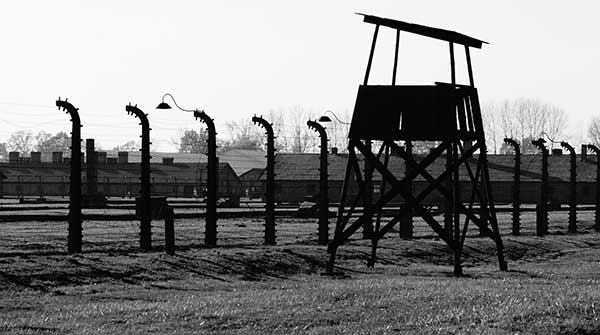Mandating Holocaust education is a crucial step toward understanding history’s darkest moments and preventing genocide
 On Oct. 30, British Columbia became only the second Canadian province to mandate Holocaust education in its curriculum. It will be required content in Grade 10 beginning in September 2025.
On Oct. 30, British Columbia became only the second Canadian province to mandate Holocaust education in its curriculum. It will be required content in Grade 10 beginning in September 2025.
As a BC educator, this is very welcome news. I have taught Social Studies 10, “Canada and the World: 1914 to Present” numerous times, both in English and French, and the Holocaust is central to all of my classes. There is no more significant watershed moment in history that is as well researched and documented. If we are going to understand the potential depravity of humanity, as well as our infinite capacity to do better, we need to study the Holocaust.
This is not to say that the Holocaust is the only genocide during this period. As a public school educator, however, one needs to be mindful of perceived biases. When a government steps forward and officially mandates a topic, or when a Ministry of Education includes a particular crime against humanity as a potential topic in a classroom, a teacher is protected from accusations of bias from community members who would try to justify such acts of barbarity. The fact that Holocaust denial has been illegal in Canada since 2022 also gives teachers protection in telling the truth about these dark pages in human history.
 Photo by Marcin Czerniawski |
| Related Stories |
| The baffling decision to honour a Nazi
|
| We must accept the mistakes of the past and make them right
|
| Silent Witness of a Holocaust Suitcase
|
It is essential not only to know the facts about the Holocaust but to understand how it happened and the changes that need to take place to ensure that events such as this never happen again. The reasons for the Holocaust are complex, and researchers continue to explore the role of expansionism, fascism, capitalism, and militarism, as well as the impact of the loss of human rights, such as freedom of speech and freedom of the press, in the rise of the Nazi state.
All are in agreement, however, on the impact of antisemitism in the Holocaust. Antisemitism is the dehumanization of our Jewish neighbours, and it has existed for centuries. One cannot effectively teach about the Holocaust without addressing antisemitism, and we cannot create a world without genocide unless we address the dangers of dehumanization.
To address dehumanization, it is necessary to humanize the victims of the Holocaust. My Grade 10 French Immersion students read La Nuit (Night in English) by Hungarian Holocaust survivor Elie Wiesel. As students get to know these real-life characters, the absurdity of the vile lies told by the Nazis and others come into clear focus.
Finally, students come to recognize the significance of the sacrifice of those who survived and those who died in the Holocaust and the Second World War. As humanity watched the filmed footage of the liberation of Nazi concentration camps, we stated a desire to make “never again” a reality. The period between the end of the Second World War and the start of the Cold War was a golden age for international humanitarian law. We adopted the United Nations Genocide Convention and the Universal Declaration of Human Rights, and we revised the Geneva Conventions.
Unfortunately, these have become ghost documents in international diplomacy and are rarely enforced. Thus, genocide has failed to become a thing of the past.
There is reason to hope, however. Whereas those who learn from history textbooks that are little more than nationalistic propaganda tend to oppose a humanizing worldview, those who have studied the intricacies of the Holocaust understand the dangers of dehumanization and demand the respect of international humanitarian law. Proof of this is in the courageous and persistent effort of so many young Jews all around the world to end the current slaughter of Palestinians in Gaza.
The BC government has taken a significant step in mandating the teaching of the Holocaust, but we still have a great deal of work to do in making never again for anyone anywhere a reality.
Gerry Chidiac specializes in languages, genocide studies and works with at-risk students. He is the recipient of an award from the Vancouver Holocaust Education Centre for excellence in teaching about the Holocaust.
For interview requests, click here.
The opinions expressed by our columnists and contributors are theirs alone and do not inherently or expressly reflect the views of our publication.
© Troy Media
Troy Media is an editorial content provider to media outlets and its own hosted community news outlets across Canada.
